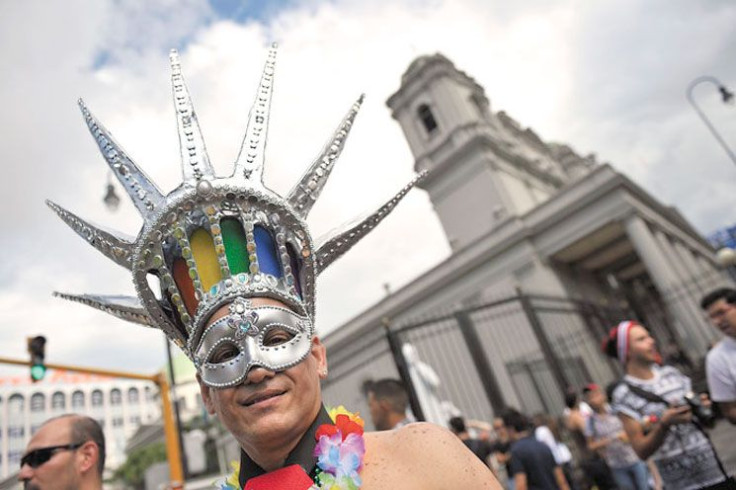
The Costa Rican Legislative Assembly approved a bill which would legalize gay marriage, lawmakers there said on Tuesday, though conservative members of the parliament did not realize what they had done until after the vote had already been carried out. The Tico Times reported that José María Villalta, a San José member of the leftist Frente Amplio party, inserted language into a reform of the Law of Young People -- which deals with various kinds of social services and laws governing marriage for young people between 15 and 35 -- that would give same-sex civil unions in that age group "the right to recognition, without discrimination contrary to human dignity, for social and patrimonial purposes".
Article 242 of the Costa Rican Family Code contains similar language, but makes clear the definition of marriage as being between a man and a woman. Villalta says that language in the newly passed bill nullifies Article 242 while leaving intact other articles in the Code.
RELATED: What Does The DOMA Repeal Mean For Binational Couples?
Some conservative parliament members immediately called for President Laura Chinchilla to veto the bill, while others called for the country's supreme court to rule on the bill. In 2011, according to the Tico Times, Chinchilla said she would not oppose gay marriage if the courts allowed, though she did not campaign on the issue, as some 73 percent of Costa Ricans then said they opposed same-sex marriage. El Pais reports that on Wednesday, Chinchilla said she would not veto it because she did not believe her office gave her the same powers of judicial interpretation that belong to the Costa Rican supreme court.
RELATED: For Sen. Patrick Leahy, DOMA Victory For Undocumented A Late One
Justo Orozco, a member of the evangelical National Renovation Party, denounced the measure, telling La Nación, "That preference is not a right. It's a stunted development of sexual identity. It can change like alcoholism, tobacco addiction."
Carmen Muñoz Quesada, head of the center-left Citizen's Action Party (PAC), defended the reform and said that the protests which had broken out among conservatives after they realized what they had done were "mostly knee-jerk reactions of surprise and indignation" and said her rivals were "looking for what to do to move back the wheel of history."
RELATED: New Zealand Legalizes Gay Marriage; Who's Next?
"Some are even talking about fraud...but none of these people who are shouting to the heavens are right, because there was a process and the law was discussed."
In Latin America, only Argentina and Uruguay recognize gay marriages. Brazil, Colombia and Ecuador recognize same-sex unions.
© 2025 Latin Times. All rights reserved. Do not reproduce without permission.




